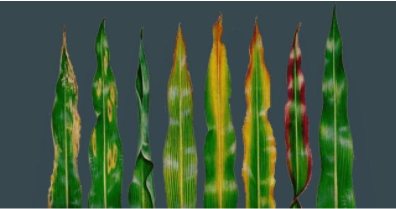
Who gave the criteria of essentiality?
(A) R. Hill
(B) F. F. Blackman
(C) M. P Kaushik
(D) D. L. Arnon
Answer
587.4k+ views
Hint: D. L. Arnon considered 16 elements essential for plant nutrition.
Complete answer: A mineral element is considered as essential based on the criteria of essentiality given by Arnon (Criteria of essentiality given by Arnon (Criteria of essentiality of inorganic micronutrients for plants.
1. These mineral nutrients are carbon, hydrogen, oxygen, nitrogen, phosphorus, potassium, calcium, magnesium, sulphur, iron, manganese, zinc, copper, boron, molybdenum, and chlorine.
2. The mineral nutrient elements play essential roles such as constituent of cell structures and cell metabolites, in cell osmotic relations and turgor-related processes, energy transfer reactions, enzyme-catalyzed reactions, and plant reproduction.
3. Plant productivity depends on the efficient discharge of these functions.
4. Heavy metals pollution is continuously increasing and posing threats to our environment. This heavy metals’ presence in soils accumulates in plants that become part of the food supply.
5. Essential elements are divided into two broad categories, based on the quantity in which they are by plants: Macro-elements and micro-element.
6. A plant cannot complete its life-cycle in the absence of the element. The action of the element must be specific, with no other element being able to completely substitute for it.
7. The element along can correct the disorders caused by its absence or deficiency.
8. Hence, it is clear that an element indirectly involved in plant metabolism does not fit into the criterion for the essentiality of an element.

Note: Most of the soil usually contain sufficient amounts of essential mineral elements for better crop production. These elements are required to be supplemented externally by adding the appropriate Fertilizers. Moreover, constant agricultural cultivation in the field may also cause depletion of certain elements that must be replenished in order to improve the fertility of the soil.
Complete answer: A mineral element is considered as essential based on the criteria of essentiality given by Arnon (Criteria of essentiality given by Arnon (Criteria of essentiality of inorganic micronutrients for plants.
1. These mineral nutrients are carbon, hydrogen, oxygen, nitrogen, phosphorus, potassium, calcium, magnesium, sulphur, iron, manganese, zinc, copper, boron, molybdenum, and chlorine.
2. The mineral nutrient elements play essential roles such as constituent of cell structures and cell metabolites, in cell osmotic relations and turgor-related processes, energy transfer reactions, enzyme-catalyzed reactions, and plant reproduction.
3. Plant productivity depends on the efficient discharge of these functions.
4. Heavy metals pollution is continuously increasing and posing threats to our environment. This heavy metals’ presence in soils accumulates in plants that become part of the food supply.
5. Essential elements are divided into two broad categories, based on the quantity in which they are by plants: Macro-elements and micro-element.
6. A plant cannot complete its life-cycle in the absence of the element. The action of the element must be specific, with no other element being able to completely substitute for it.
7. The element along can correct the disorders caused by its absence or deficiency.
8. Hence, it is clear that an element indirectly involved in plant metabolism does not fit into the criterion for the essentiality of an element.

Note: Most of the soil usually contain sufficient amounts of essential mineral elements for better crop production. These elements are required to be supplemented externally by adding the appropriate Fertilizers. Moreover, constant agricultural cultivation in the field may also cause depletion of certain elements that must be replenished in order to improve the fertility of the soil.
Recently Updated Pages
Master Class 11 Computer Science: Engaging Questions & Answers for Success

Master Class 11 Business Studies: Engaging Questions & Answers for Success

Master Class 11 Economics: Engaging Questions & Answers for Success

Master Class 11 English: Engaging Questions & Answers for Success

Master Class 11 Maths: Engaging Questions & Answers for Success

Master Class 11 Biology: Engaging Questions & Answers for Success

Trending doubts
One Metric ton is equal to kg A 10000 B 1000 C 100 class 11 physics CBSE

There are 720 permutations of the digits 1 2 3 4 5 class 11 maths CBSE

Discuss the various forms of bacteria class 11 biology CBSE

Draw a diagram of a plant cell and label at least eight class 11 biology CBSE

State the laws of reflection of light

Explain zero factorial class 11 maths CBSE




